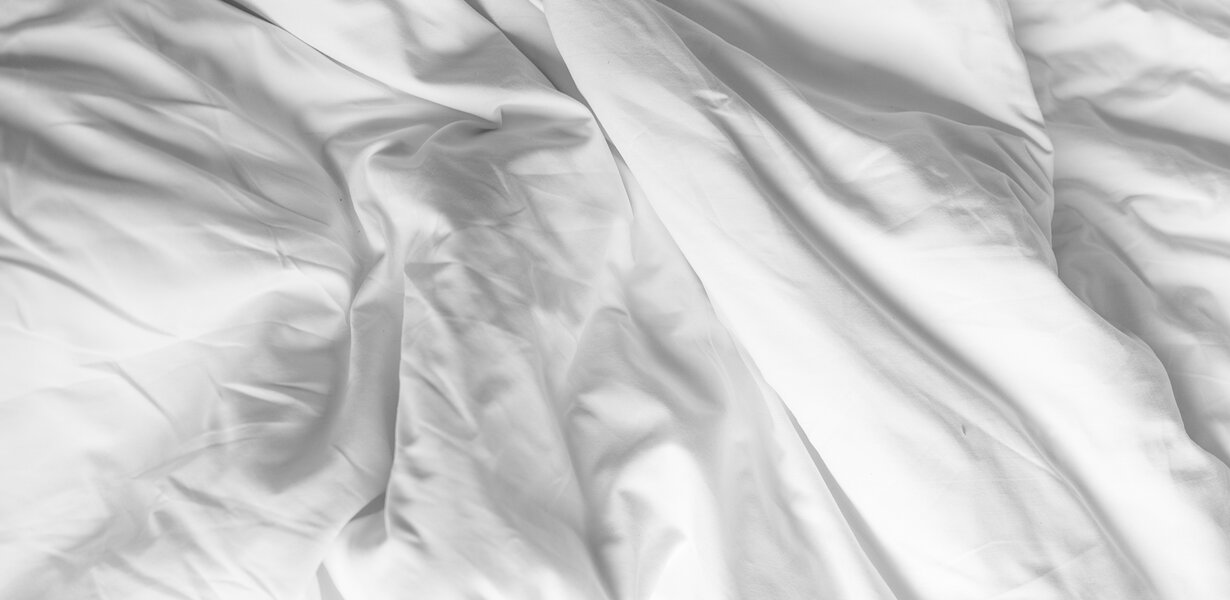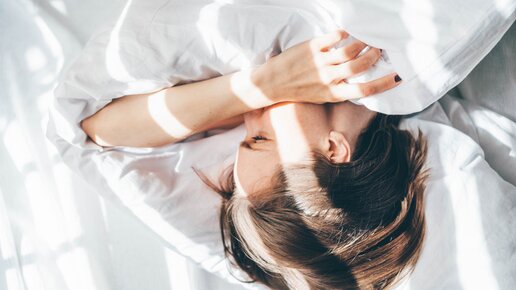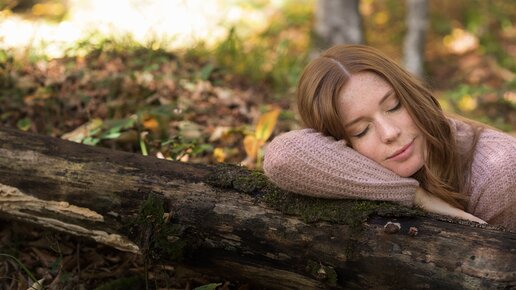Do you have problems falling asleep at night and do you roll around in bed for hours? Once you’ve named every sheep you really should look around for suitable strategies to bring an end to your insomnia. But how do you find peace and sleep? Here you will find tips for falling asleep and strategies that we would like to recommend.
8 Tips for falling asleep
1. Rhythm and routine
Fixed times for falling asleep and waking up are good for sleep. But only if they correspond to the individual circadian sleep/wakefulness rhythm. “Larks” go to sleep early and are therefore quite cheerful in the morning. “Owls” are still productive in the evenings and sleep longer in the morning. If you are tired, this is always a sure sign that it is time to go to bed. Sleep is difficult for shift workers and jet-lagged passengers. Their inner clock is out of sorts so they may have more difficulty in falling asleep and subsequently feel overtired. External help may then be necessary for them to be able to return to an appropriate sleep rhythm.
Melatonin, a substance that is formed by the body itself, can help in this because melatonin contributes to the alleviation of the subjective sensation of jet lag. For this purpose, at least 0.5 mg of melatonin should be taken shortly before going to bed on the first day of travel and on the first days after arrival at the destination. Find out more about melatonin here.
2. Evening rituals
An evening ritual, for example, reading poetry, a sleep-promoting drink, quiet music, or relaxing thoughts shows the body and mind that it is the end of the day. Endurance sports or physical exertion should preferably be completed several hours earlier. The person comes to rest and falls asleep. The classic drink of “milk with honey” provides the amino acid tryptophan, which serves as a precursor for the sleep hormone melatonin.
How can you shut down mentally and physically in the evening?
- Thought journaling The bedroom is no place for over-active thought processing. If you can’t switch off again in the evening, just put your worries down on paper (journaling). By recording your thoughts, you transfer the mental load to paper, empty your head, and thus make it easier to switch off when you fall asleep.
- Relax! From meditation to yoga The last hours of the day should be all about relaxation. Special mental cleansing and relaxation techniques such as sleep-onset meditation or yoga (e.g. Spirit Moonlight yoga) cleanse mentally and physically and pave the way to the land of dreams.
3. Quiet in the bedroom
A quiet sleeping environment, possibly with the help of ear plugs, is the basis for restful sleep. Electronic devices such as TVs, tablets, or smartphones should not go into the bedroom. Checking emails or current posts shortly before falling asleep tends to create excitement rather than relaxation. In addition, the blue light of the screen signals daylight to the brain and prevents the body's production of the sleep hormone melatonin.
4. The stress factor
Stressful thoughts, stress, and problems disturb the entire sleep process. Increased physical and psychological stress during the day and inadequate stress management have an unfavorable effect on relaxation and sleep. The nerves, the mind, and general well-being can be supported with micronutrients and special plant extracts. For example, some B vitamins (e.g. vitamin B1, biotin, vitamin B6, vitamin B12) and the mineral magnesium contribute to the healthy functioning of the nerves and the mind. Ashwagandha (sleep berry) contributes to mental and physical well-being in times of increased stress and Rhodiola rosea (roseroot) as an herbal adaptogen supports you in times of physical and emotional stress. You can find more detailed information on the topic of resilience here.
5. Eat better, sleep better.
When your stomach is stretched full, restful sleep is difficult. Late in the evening, a fatty and high-calorie meal or vegetables with a high proportion of indigestible fibers such as cabbage or beans are not a good prerequisite for restorative sleep. They lie heavily on the stomach and stress digestion. Light-cooked foods are better for you in the evenings. You should leave about two to three hours between the last meal and going to bed. But an empty stomach can also delay falling asleep and also prevent sleep. This is because normally the saturation hormone leptin ensures that we can survive hours of sleep without eating and feeling hungry.
If you want to build up your muscles, you can use dinner as an opportunity. Protein-rich foods or protein drinks in the evening support muscle mass thanks to the growth hormone that is released at night. The effect is particularly strong if you do sports before your evening meal.
Which food helps to fall asleep?
The nutrients contained in the food can also affect the sleep experience. The focus of modern sleep research is once again the sleep hormone melatonin, which regulates our day/night rhythm. Melatonin is not only contained in our body but also in individual foods in small quantities. These include pistachios, cranberries, and tomatoes.
However, our body also produces the hormone itself over several intermediate steps. The building blocks required for this are provided to us by the consumption of protein-rich foods such as fish, meat, legumes, nuts, and eggs. In addition, you can provide your body with the two co-factors magnesium and vitamin B6 in the form of nuts, whole grain products, oat flakes, green vegetables as well as fish and meat.
6. Be cautious with alcohol
A glass of alcohol before going to bed has a relaxing effect and makes you tired. Alcohol can help us to fall asleep, but in the second half of the night, there are increased waking phases. It is also known that alcohol shortens the important REM phases. Unfortunately, alcohol brings the ratio of some of the neurotransmitters that are essential for restorative sleep out of balance. Too much alcohol therefore causes difficulty sleeping through, reduces the duration of sleep, and results in poor sleep overall.
7. Caffeine and Co – it’s all a matter of timing
Nothing beats a nice cup of coffee or black tea! If you suffer from sleep problems, however, you may want to stay away from caffeinated drinks in the afternoons and evenings. Interestingly, alcohol can also stop you from getting a good night’s rest. While it does make us tired and, as a rule, helps us drift off more quickly, the resulting sleep is not very restful. The same applies to nicotine.
8. Being tired
Being tired is a good prerequisite for restful sleep. Physical exercise and sports, if possible in the fresh air, provide a good basis for the tiredness that sets in the evening. The happiness hormone serotonin plays a central role in this because it is the precursor to the aforementioned sleep hormone melatonin, which makes us tired. The serotonin produced during the day is converted by the pineal gland into melatonin once it gets dark and makes you feel tired.
Why can't I sleep even though I am tired?
If you are tired in the evening and still cannot sleep, you should take a look at your lifestyle habits. The consumption of drinks containing caffeine, and nicotine or the use of certain medications can lead to you finding sleep more difficult. Even a long nap, a sumptuous meal at night, or stimulating “evening sports” can make it difficult to fall asleep.
Another factor that can get in the way of sleep is our mind. If your thoughts are going round and round, the path to dreamland is often rocky. However, it is not always mental factors and habits that counteract sleep. Hormonal changes can also make falling asleep more difficult.
Which home remedies help you fall asleep?
Anyone wringing their hands about sleep can use some hints from “Grandmother’s Box of Tricks”. Proven home remedies include a calming bath, skin balm with lavender oil, or the use of traditional herbal sleeping aids (e.g. hops, valerian). The old Indian home remedy, Ashwagandha, which is known on our shores as the sleep berry, also invites you to dream. A glass of warm milk with honey has proven effective in children who cannot sleep. This provides the child’s body with generous warmth and amino acids such as L-tryptophan.
Tired adults can use tailor-made micronutrient preparations if needed.
Ashwagandha is an herbal adaptogen that supports mental and physical well-being in times of increased stress and supports the normal phase of falling asleep. This characteristic makes Ashwagandha an ideal companion for falling asleep – especially for stressed people who are kept awake by inner restlessness at night.
Hops contribute to normal sleep.
Lemon balm and valerian promote normal sleep and relaxation.
Magnesium and vitamins B1, B6, B12, niacin, and biotin support the normal function of the nervous system and the mind.
The consumption of 1 mg of melatonin shortly before going to bed helps to shorten the time to fall asleep, and hops also contribute to normal sleep.
Which methods help us to fall asleep?
Quiet tones, gentle falling asleep.
Gentle tones, such as classical music or ballads, can help you to glide gently into the land of dreams. The music should be so quiet that you have to make a bit of an effort to hear it. This way, you no longer have any room for stressful thoughts
Breathe into sleep.
The American Dr. Andrew Weil has developed a formula with the 4-7-8 breathing technique that is intended to make falling asleep easier for particularly stressed people. Practiced twice a day for six to eight weeks, this technique should lead to rapid success with the onset of sleep. This is how it works:
- Position the tip of the tongue so that it touches the palate immediately over the anterior teeth. Hold the tongue in this position during the entire exercise.
- Breathe out completely and audibly through your mouth.
- Close your mouth and inhale carefully through your nose. Count in your head up to four.
- Then hold your breath and count up to seven.
- Then breathe out completely and audibly through your mouth again. Count up to eight.
- Repeat the 4-7-8-Sequenz four times.
Tossing and turning are prohibited.
Once the hundredth sheep is hovering over the fence, you have to admit that sleep cannot be forced. Just the opposite! The more persistently you try to fall asleep, the less successful it is. The following therefore applies: If you wake up at night and don’t find your way back to dreamland after ten minutes, you should get up and devote yourself to a calm distraction such as quiet music, a crossword puzzle, or a gentle read. Only when you feel sleepy should you return to bed.
TIP
Rituals such as a bubble bath or a massage also help us to get into the mood for nighttime sleep.
What are some of the causes for sleep disorders?
Insomnia can be caused by physical, psychological, or external influences; these should be clarified as precisely as possible.
Possible physical causes include pain, sleep apnea, and restless legs syndrome (the strong urge to move one’s legs during the night to ease feelings of discomfort).
Psychological factors, such as problems at work, family or relationship issues, and money worries, can also have a strong influence, as we tend to take these problems to bed with us. But if your soul is burdened with worries, the road to slumberland can be a rocky one. Your thoughts keep circling in your mind and sleep becomes impossible.
External factors can also affect sleep. For example, shift work or long-distance travel between different time zones (jet lag) can throw our internal clocks off balance. There are many possible external factors influencing sleep: bright lights, temperature, sounds or loud noise, and eating and drinking habits, to name but a few.
Better sleep during pregnancy
Which pregnant woman doesn't know that? Although you’re dog-tired during the day and fall asleep in the evening in front of the TV, sleep deserts you once you go to bed. The growing fetus, a changed hormone balance, the pressure on your bladder, but also heartburn, calf cramps, and restless legs all contribute to robbing you, as an expectant mother, of sleep. But insomnia does not have to be something that must simply be tolerated during pregnancy. In this way, even simple measures can help pregnant women to sleep better again.
1. Choose your best sleeping position
To find deep and restorative sleep and at the same time to relieve your abdomen and internal organs, you should become accustomed to sleeping on your left side during early pregnancy. In this position, the pressure is taken from the lower vena cava, whereby the blood can circulate freely in the abdominal cavity. For the baby, this means an optimal maternal supply of nutrients and oxygen. In addition, the lateral position makes life easier for the kidneys and counteracts swollen legs and water retention.
2. Bed down softly
As the fetus grows, pillows can relieve the burden. A cushion under your stomach and a pillow between your knees and in your back help you to become more comfortable.
3. Eat sleep-friendly foods
Pizza, pasta, or crisps? Expectant mums like to give in to their cravings. Nevertheless, you should avoid eating heavy or fatty foods in the evening. A light meal, no later than two hours before going to bed, is significantly more sleep-friendly.
4. Drink smart
Pregnant women who are suffering from insomnia should not drink too much before going to bed to avoid having to get up and go to the loo at night. They should also avoid stimulating drinks such as cola or coffee as much as possible.
5. Exercise and sport
An active daily routine with regular exercise promotes tiredness in the evening. Pregnant women who need to take a nap at noon should take it as early and briefly as possible.
6. Pampering programme
Pregnant women who do not want to fall asleep in the evening should not force themselves to sleep. A warm foot bath or a pleasant bath helps you relax and rest and promotes sleep.
And now after all the good tips, the bad news: In the last few weeks of pregnancy, maternal sleep problems can usually no longer be eliminated with simple tips and tricks. At this stage in the game, you just have to grit your teeth! Because all the stress will soon be rewarded with a bundle of joy!
Better sleep during menopause
Whereas a visit to a cocktail bar or a sleepless child robbed women of nighttime relaxation in the past, with menopause this all fires up again. In addition to hot flushes, hormonal changes (e.g. a decreasing oestrogen level), worries, stress or one or the other age-related discomforts can impair sleep. The menopause is a totally natural process, which women sometimes have little influence over. Nevertheless, there are still tricks for dealing with this "hot phase of life" which will also lull you into a deep sleep.
Here are 8 tips for better sleep during the menopause:
- Keep the air in the room “fresh” (16-18°C) and nicely dark
- Use lightweight breathable bedding and nightwear
- Always go to bed at the same time
- Do not drink stimulating drinks in the afternoon
- Avoid alcohol
- Eat early in the evening and only light meals
- Be physically active during the day and relax in the evening
- Ban TV, tablet and smartphone from the bedroom
Read our blog post about different ways to live through this heated phase of life more calmly:









